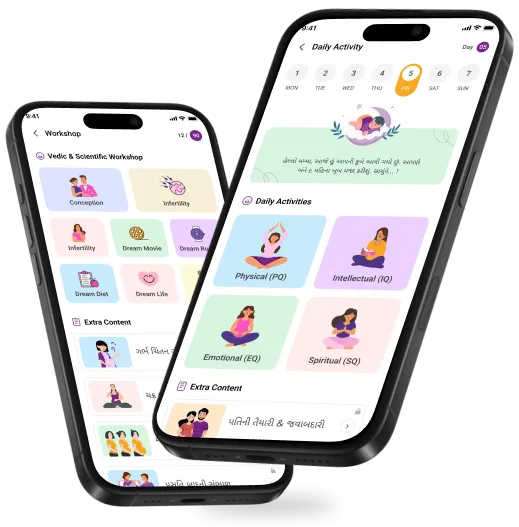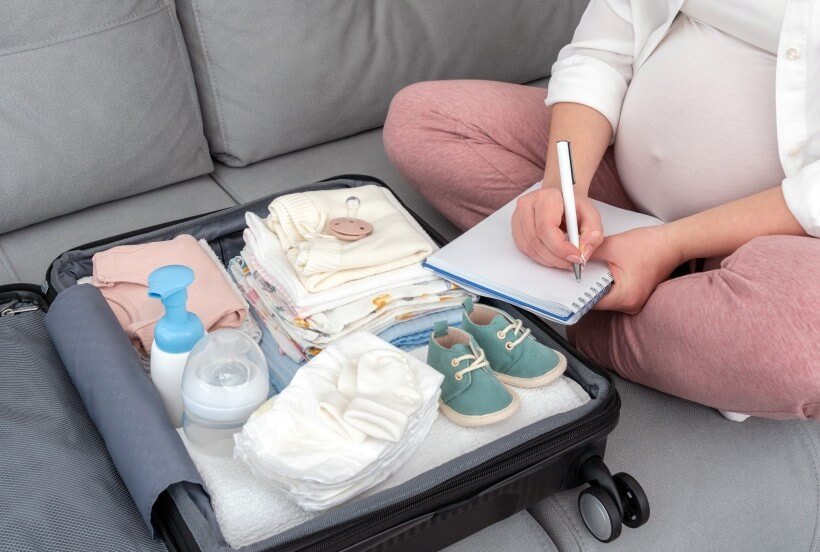Congratulations on becoming new parents! As you go through the beautiful journey of motherhood, it's important to understand how your body changes after giving birth, especially when it comes to periods and postpartum sex. Here's what you need to know.
Imagine this: You've just welcomed your precious little one into the world, and now you're adjusting to life as a new mom. Along with the joy and sleepless nights, your body is going through some changes, especially when it comes to periods and sex. Let's dive into what you need to know in a simple way.
Postpartum Bleeding:
Picture this - after giving birth, your body will experience postpartum bleeding. It's like a heavy period that can last for a few weeks. This is completely normal as your body heals and sheds the uterine lining. After giving birth, you will experience postpartum bleeding, also known as lochia. This discharge can last for a few weeks and is your body's way of shedding the lining of the uterus.
Periods:
Your postpartum menstrual cycle might not be the same as before quickly. It could take some time for your periods to regulate after childbirth. Don't be surprised if they're irregular or heavier than usual in the beginning. Your postpartum menstrual cycle may take some time to return to normal after childbirth. It's common for periods to be irregular or heavier than usual in the months following delivery.
Sexual Intimacy:
Visualize this - you may feel nervous about getting intimate again after having a baby. It's okay to take things slow and communicate openly with your partner. Your body needs time to recover, so listen to what it's telling you. It's normal to feel apprehensive about resuming sexual activity after giving birth. Your body has gone through a lot, so take your time and communicate openly with your partner about any concerns or discomfort.
Physical Changes:
Your body has been through a lot, mama. Be patient with yourself as you adjust to the changes post-baby. Your body may have undergone significant changes during pregnancy and childbirth. Be patient with yourself as you adjust to these changes, both physically and emotionally.
Pelvic Floor Exercises:
Exercises: Imagine doing simple exercises that can make a big difference. Strengthening your pelvic floor muscles with Kegels can help with postpartum recovery and enhance your sexual well-being. Strengthening your pelvic floor muscles is essential for postpartum recovery and can help improve sexual function. Consider doing Kegel exercises daily.

Sex After Delivery
When can I have sex after giving birth? After delivery, hormonal changes can make vaginal tissues thinner and more sensitive. Your vagina, uterus, and pelvic floor may take some time to return to their normal size. Breastfeeding may reduce your desire for sex. There's no specific timeline for when to resume sex after birth. Most doctors advise waiting for 4 to 6 weeks after vaginal delivery. However, after a cesarean section, it's important to get a physical check-up before resuming sexual activity.
Episiotomy is a surgical cut to widen the vaginal canal. If you had an episiotomy, you may need to wait longer before having sex. Having postpartum sex too soon can increase the risk of complications like postpartum bleeding after delivery and uterine infections.
Problems Related to Sex After Childbirth
After childbirth, you may experience various sexual issues. A small study in 2005 found that 83% of women experienced sexual problems and problems in restoring intimacy after childbirth in the first 3 months after their first delivery. These issues may include vaginal dryness, thin vaginal tissues, discomfort, perineal tears, bleeding, pain, loose muscles, discomfort, fatigue, and low libido.
Resuming intercourse post-delivery tips for a healthy sex life include giving your vagina time to naturally lubricate, using lubricants if needed, communicating openly with your partner, and doing Kegel exercises to strengthen your pelvic floor muscles.
During the first few months after delivery, your periods may be irregular, and the flow may vary. Contact your doctor if you experience excessive bleeding, sudden heavy bleeding with severe pain, sudden fever, continuous heavy bleeding for more than 7 days, large blood clots, foul-smelling discharge, severe headache, difficulty breathing, or pain while urinating. Tips for a healthy sex life after pregnancy and Post-birth sexual health guidance:
- Give time to make your vagina its natural lubrication, increase foreplay.
- You can use LUBRICANT. You may need a little help with lubrication along with your hormones.
- Talk to your partner. You should maintain an open dialogue with your partner about what feels good and what doesn't.
- Kegel exercises help in rebuilding the muscles of the pelvic floor.
Kegel Exercise
During pregnancy, do Kegel exercises. For this, your bladder should be completely empty, meaning you should do this exercise after urinating. Exercising the muscles can help you gain strength in your vagina. Building your endurance by repeating for a long time can help build your resilience.
Contract and pull in your pelvic floor and vagina. Hold for 5 to 10 seconds, then slowly relax. Repeat these 7 to 8 times at once and do these 3 to 5 times a day.
{{cool-component}}
Periods After Childbirth?
If you are not breastfeeding, your period will usually return between 6 to 8 weeks after giving birth. If you are breastfeeding, the return period may vary.
Whether you have given birth vaginally or through a cesarean delivery, you may expect some bleeding and vaginal discharge after childbirth. Your body sheds blood and tissues that line your uterus during pregnancy.
How can the duration vary?
When you have your first period after childbirth, it may not be like before. Because of Postpartum menstruation cycle changes, it takes time for this cycle to become regular again.
Women who had endometriosis before pregnancy may experience lighter menstruation after delivery. (Endometriosis is a disease in which tissue similar to the lining of the uterus grows outside the uterus.) This variation in duration can be due to two reasons, Asherman's syndrome and Sheehan's syndrome. Asherman's syndrome involves scar tissue forming in the uterus. Sheehan's syndrome results from damage to your pituitary gland, which can lead to serious blood loss.
What to do for Quik Recovery?
Consult Your Doctor
If you have any concerns about your postpartum recovery, periods, or sexual health, don't hesitate to reach out to your healthcare provider. They can offer guidance and support to your individual needs.
- Soaking through more than one pad per hour
- Sudden heavy bleeding with severe pain
- Sudden fever
- Continuous bleeding after delivery for more than 7 days
- Clots of blood larger than a softball
- Foul-smelling odor
- Severe headache
- Difficulty breathing
- Pain while urinating

Pranayam
You can start practicing pranayama after consulting with a doctor 1 month after a normal delivery. If it's a cesarean, wait at least 3 months after a doctor's check-up before starting pranayama.
Due to the improved oxygen levels in the body, pranayama can bring significant improvements in hormonal changes. Pranayama can help in enhancing both physical and mental well-being.
Follow the information provided by your health care provider & take care of your body's nature. Do this pranayam everyday to increase your lung capacity.
- Anulom-Vilom
- Bhramari
You can start doing breathing exercises like Anulom-Vilom and Bhramari about 1 month after a normal delivery and at least 3 months after a cesarean section, following your doctor's advice. These exercises can help improve hormonal balance and overall well-being. Remember to follow health advice, listen to your body, and consult your doctor for guidance.
{{cool-component}}
Conclusion
Remember, every woman's postpartum journey is unique. Listen to your body, prioritize self-care, and give yourself grace as you start this new chapter in your life. Parenthood is a beautiful adventure, and taking care of yourself is an important part of the journey.
So, rock on, mamas, stay informed, and own this beautiful journey with grace and self-love!
Disclaimer: This blog is correct as per the writer's knowledge. This is not medical guidance. Follow as you are responsible for.












.webp)

.webp)





